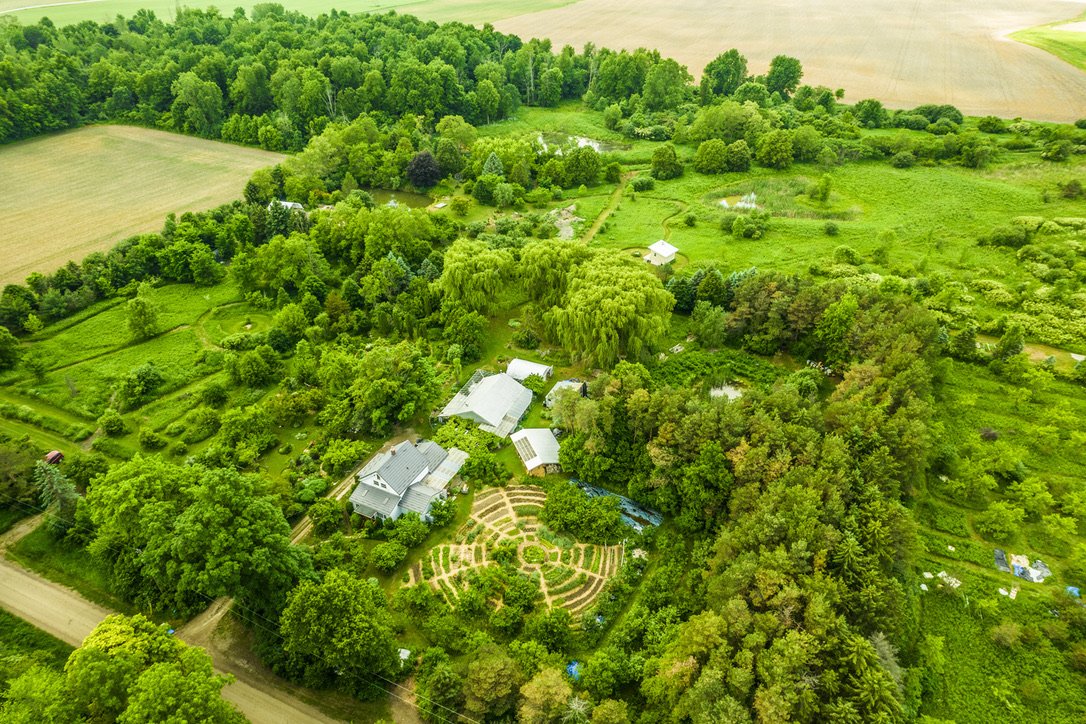Enroll Now
☆
Enroll Now ☆
Forest Gardening:
Edibles from the Edge (Workshop)
Forest ecologies reveal numerous valuable qualities we can learn and be inspired by. Humans would be wise to emulate nature in how we live with each other and in how we grow our food.
Forest Ecologies are:
Self-maintaining, renewing, fertilizing, and propagating.
Conserve clean air, water, nutrients, soil excellence, and biodiversity.
Self-sustaining – a system that is stable, irrepressible, and resilient.
June 13 - 15, 2025
“The glory of forest gardening: hands in the dirt, head in the sun, heart with nature. To nurture a garden is to feed not just the body, but the soul.”
- Alfred Austin
Forest ecologies reveal numerous valuable qualities we can learn and be inspired by. Humans would be wise to emulate nature in how we live with each other and in how we grow our food.
Forest Ecologies are:
Self-maintaining, renewing, fertilizing, and propagating.
Conserve clean air, water, nutrients, soil excellence, and biodiversity.
Self-sustaining – a system that is stable, irrepressible, and resilient.
These qualities emerge from the dynamics of the forest as a whole system and not from the elements that comprise the woods alone. To design productive edible ecosystems that express these same qualities, we must understand forest structures, functions, patterns, and processes and use this knowledge wisely.
This highly interactive series will teach you about forest garden design. You’ll learn how to turn your yard, school, workplace, or park into an edible forest garden by understanding Ecological Ethics, Principles, Strategies, Tools, and Techniques. This includes assessing your site and human systems, understanding plant ecosystem functions, selecting and installing edible and native plants, and making connections between ecology and food production. You’ll also learn about sustainable weeding, watering, and fertilization methods, as well as harvesting and preserving your plants for food, medicine, or value-added products. Finally, you’ll learn about hibernation, composting, mulching, and how to close the loop.
In this series, we dive deeply into the vision, theory, and practice of creating wholesome, dynamic, and resilient medicinal ecosystems using temperate deciduous forests as models. We will utilize site walks, experiential exercises, and design projects to help you understand how the architecture, social structure, underground economics, and the successional processes of natural forests can be applied to the design of herbal ecosystems. You will learn various ecological design processes while working on a range of compilations of food-producing ecologies at our demonstration and research gardens.
“The keystone of forest gardening is a paradigm shift in our human consciousness.
From monoculture mind to polyculture mind;
From separation to unity;
From exploitation and manipulation to respect and interdependence;
From intervener to ecosystem participant.”
- Dave Jacke
You will be inspired and empowered to design ecological forest gardens.
Curriculum
Day 1
The Web of Connections & Natural Patterns in the Garden
Working with Nature
The Forest Garden Design Process
Patterning: Unity & Biodiversity
The Three Ecological Principles
Day 2
The Five Elements of the Forest Architecture
The Seven-Story Garden: Vegetation Layer
Grow-Your-Own-Food Garden Design
Installation to Rewild Our Landscapes
Connection Between Ecology and Food Production
Includes:
Forest Gardening: A Call to Action Manual
All workshop materials, handouts & charts
Registration Details
Date:
June 13-15, 2025
Friday Evening Herb Walk
7 - 9.30 pmCost Sliding Scale
Regular - $350Reduce - $300 for those who find the regular rate beyond their means
Sponsor - $400 to support those who need to choose the ‘Reduced Rate’
Plus HST taxPre-registration is essential one week before the starting date.
Please read our Commitment & Cancellation Policy.
Meet your instructor
Shantree Kacera
Shantree Kacera, R.H., D.N., Ph.D., an international author and teacher, co-directs The Living Centre Eco-Spiritual Education Sanctuary since 1983. With a doctorate in Nutritional Medicine and Herbalism, Shantree pioneers integrative approaches to Ayurvedic Medicine, Living Nutrition, and Herbalism.
A passionate curator, mentor, and Earth advocate, Shantree focuses on forest gardening. Shantree, a trailblazer in permaculture, applies organic veganic forest gardening practices, featuring a unique circular medicinal-wheel forest garden on the 50-acre botanical sanctuary. With over 45-years of teaching experience, he integrates herbalism, plant medicine, and forest gardening with scientific insights for a regenerative and evolved future.





